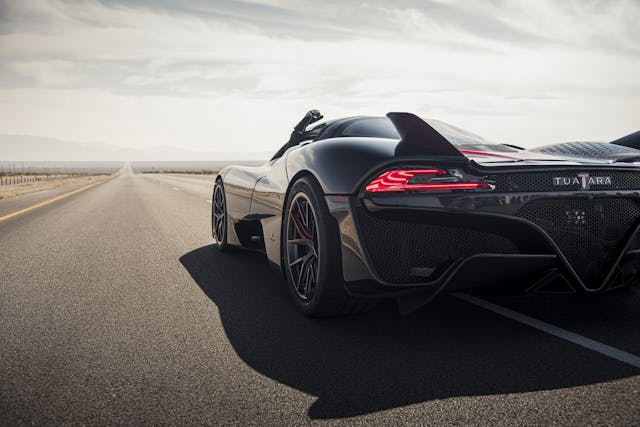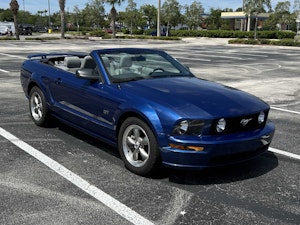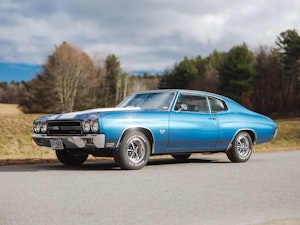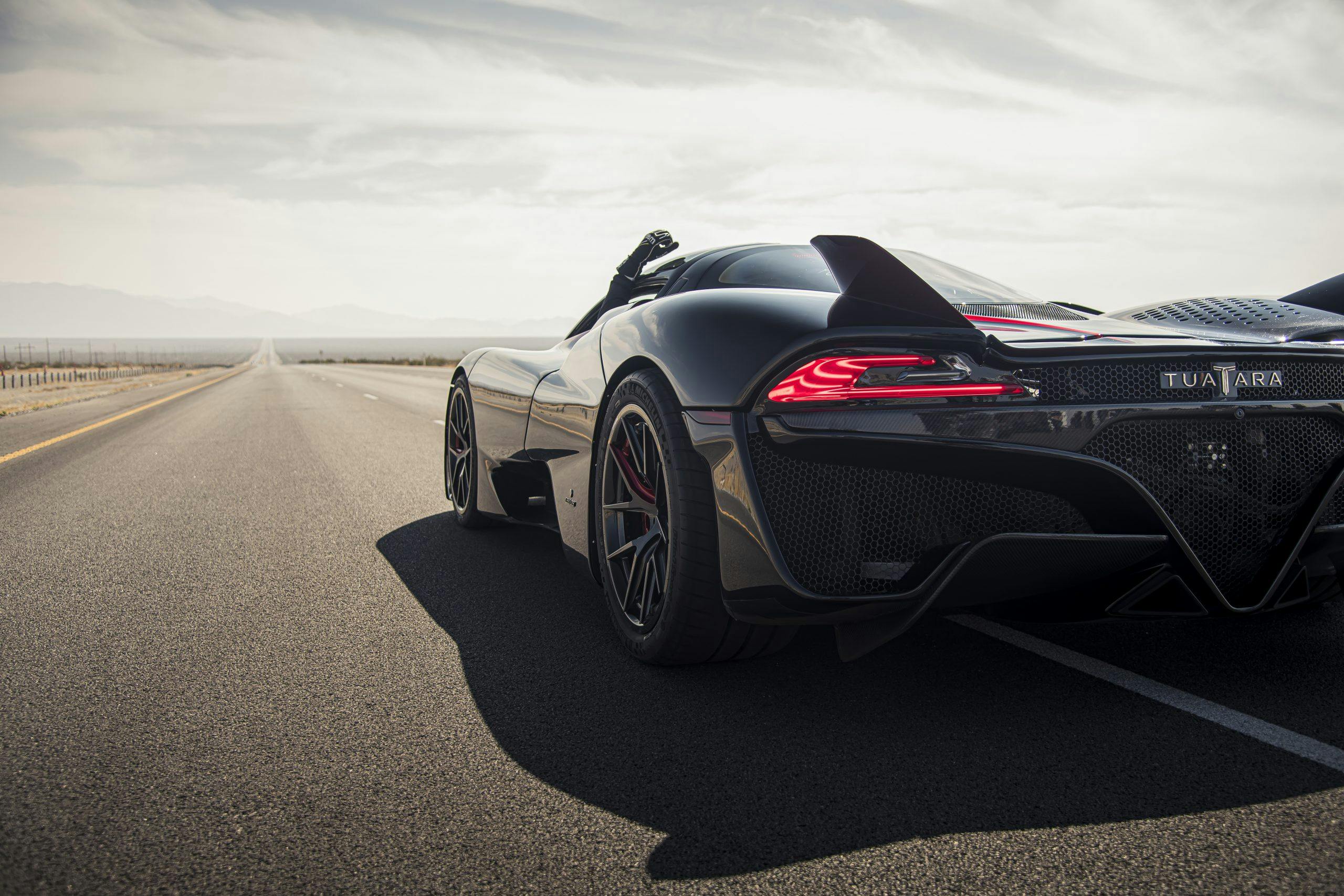Media | Articles
SSC will rerun its Tuatara top speed record attempt
SSC North America, the company behind the Tuatara supercar, has announced that it will rerun its recent attempt for the production car top speed record. The announcement comes on the heels of broad internet skepticism questioning the validity of the test and video footage that SSC released to the public as part of the initial run.
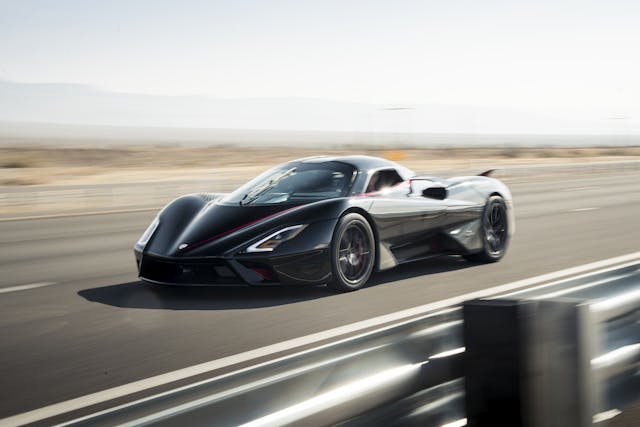
Almost immediately after the record run footage hit the internet, a few prominent members of the automotive YouTube scene began poring over the videos. In just a few short days, the broader automotive community had raised concerns of its own. By marking fixed points along the seven-mile stretch of highway 160 near Pahrump, Nevada, and then calculating the elapsed time that it took the Tuatara, driven by European racer Oliver Webb, to travel between the two points, outside skeptics were calculating speeds well below the claimed 331-mph top speed supposedly achieved on the second of two runs that Saturday morning in early October. While these efforts were in many cases far from a scientifically definitive means of coming to any conclusion, the collective doubt was sufficient for SSC to announce it would rerun the attempt.
A video statement released by SSC CEO Jerod Shelby on October 30 addressed the apparent discrepancies. “The first couple [videos] from the very same run, we all of a sudden were seeing the same doubts,” said Shelby. “We were seeing different speeds for the very same run.” He also acknowledged that the doubts put more than just his reputation at risk.
“I take this very seriously. My team, and everybody that’s associated with this project around the world had looked to me to make sure that this was packaged well. And I was starting to figure out that I had dropped the ball in that area.”
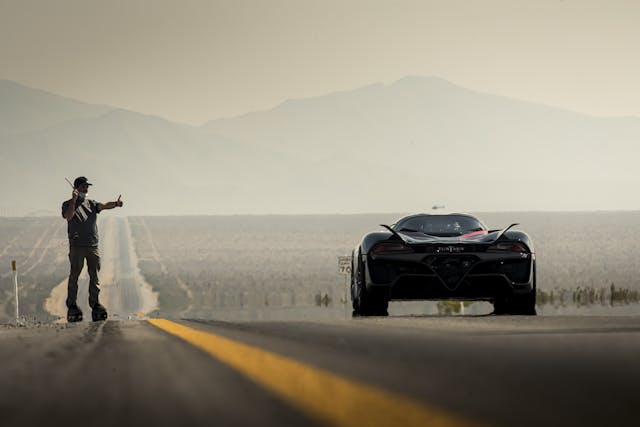
Clear as mud yet? Here’s where things get even murkier. On October 26, SSC issued a press release announcing that Dewetron, the GPS company whose tracking devices were used in the record runs, had validated the data, therefore verifying the claimed speeds. Two days later, Dewetron then issued a statement saying that it had not validated the GPS data, noting that none of its team members were on site for the actual speed runs.
Marketplace
Buy and sell classics with confidence
Despite the contradicting statements, Shelby then issued a personal statement on October 28 outlining what he believed had gone wrong. In the statement, he maintains that the claimed speeds were real and that the confusion was a result of video editing.
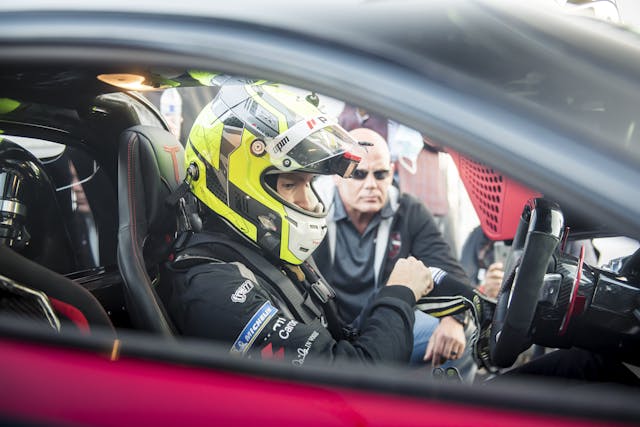
In a move that has been well-received by many of the skeptics and the larger automotive community, Shelby’s October 30 video statement included the announcement that SSC will indeed run the record again. Shelby admits that the record will never be perceived as perfect now, but the team will nevertheless rerun the attempt in the near future. As a vote of confidence, he has also personally invited three of the main skeptics from YouTube—Tim Burton (better known as Shmee150), Misha Charoudin, and Robert Mitchell—to attend the next record attempt in person. Shelby said that the next attempt will use multiple GPS companies’ instruments as a way to layer on verification data.
There remain a few unknowns as of this writing. First, Oliver Webb has not yet confirmed whether he’ll be behind the wheel for the second attempt. We’ve reached out to SSC for confirmation on exactly who will pilot the car, but there’s been no update. In an Instagram video posted on October 28, Webb acknowledged that he was finding out the information at the same time as the rest of the internet world. He clarified that he’s not under any sort of promotional contract with SSC, that the record was just “a cool opportunity” for him. Remember, after the second pass in the Tuatara, he told SSC staff on site that he would only make one more pass, noting the risk of tempting fate at those speeds amid dangerous cross winds.
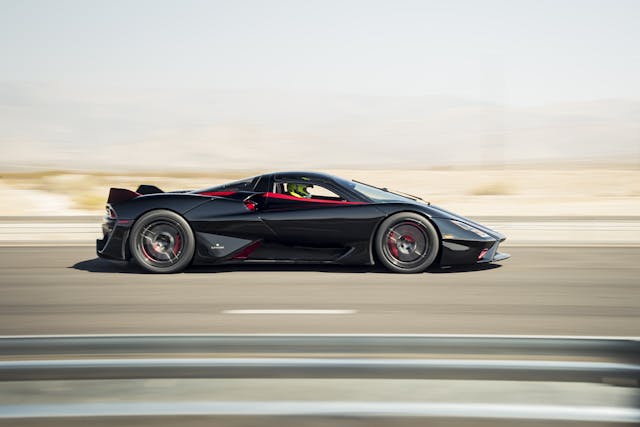
Second, it’s unknown whether Guinness will be on hand for the verification. In a statement given to Hagerty when asked about the first attempt, Guinness simply said that it was “not present in any capacity, and we have not verified this as a new record.” Guinness does not always send representatives for such attempts, and companies or individuals will often follow a strict set of protocols set forth by Guinness and then submit data from record attempts for verification after the fact.
We’ll have to wait and find out whether the initial test data is validated, but if SSC hits its the target speed of 500 kilometers per hour (roughly 311 mph) on a future attempt, the Tuatara’s doubters will have been silenced. Of course, a test like this is far from a sure thing even in ideal conditions. For any repeat run, it’s at this point clear that multiple parties will ensure every shred of data is meticulously considered.
